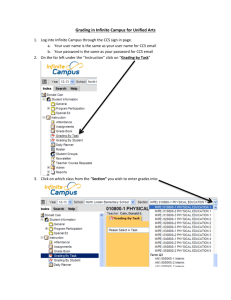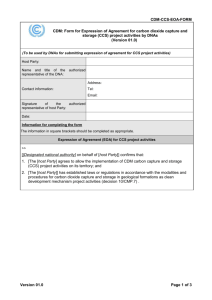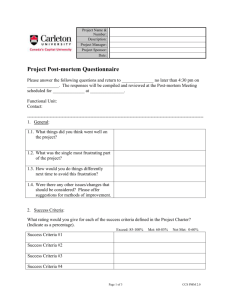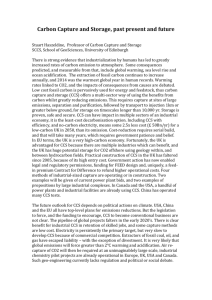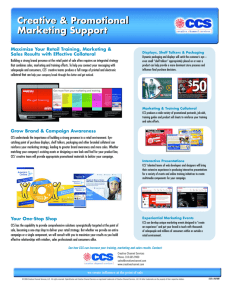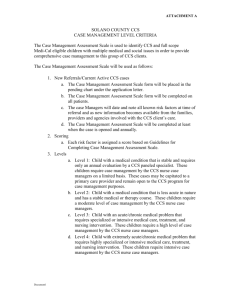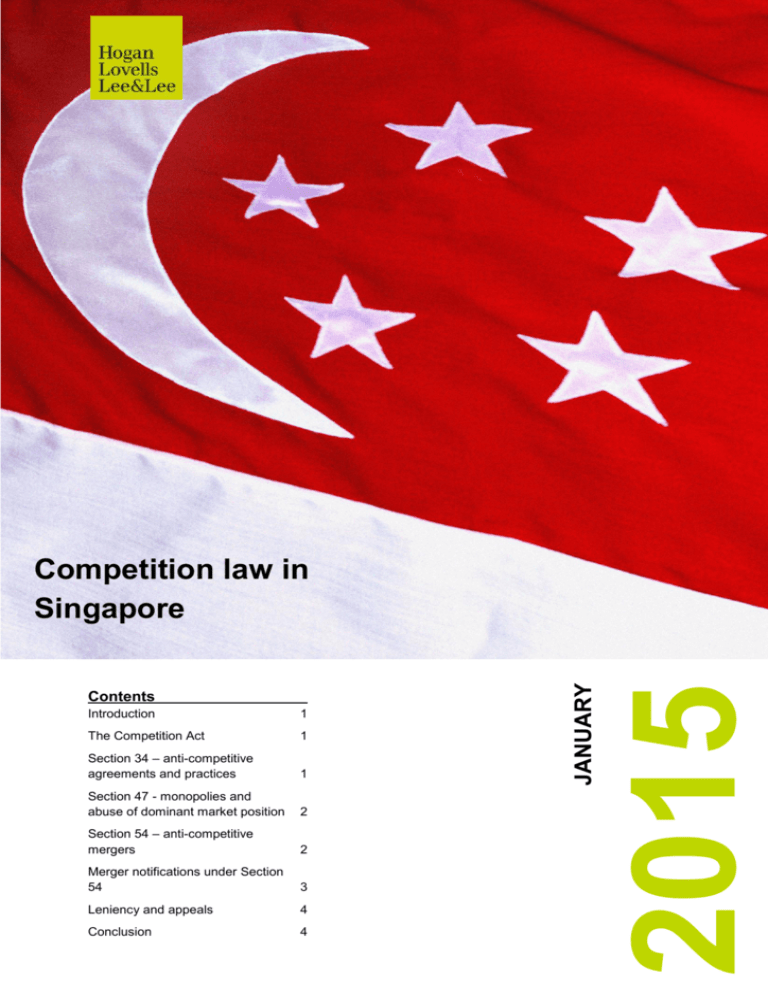
Introduction
1
The Competition Act
1
Section 34 – anti-competitive
agreements and practices
1
Section 47 - monopolies and
abuse of dominant market position
2
Section 54 – anti-competitive
mergers
2
Merger notifications under Section
54
3
Leniency and appeals
4
Conclusion
4
2015
Contents
JANUARY
Competition law in
Singapore
Further information
If you would like further information on any aspect of this client note, please contact a person mentioned below.
Contact
Stephanie Keen
Partner, Singapore
T +65 6302 2553
stephanie.keen@hllnl.com
Maurice Burke
Partner, Singapore
T +65 6302 2558
maurice.burke@hllnl.com
Adrian Chan
Partner, Singapore
T +65 6557 4814
adrian.chan@hllnl.com
Justin Tong
Senior Associate, Singapore
T +65 6302 2567
justin.tong@hllnl.com
Matthew Bousfield
Associate, Singapore
T +65 6302 2565
matthew.bousfield@hllnl.com
This note is written as a general guide only. It should not be relied upon as a substitute for specific legal advice.
Competition law in Singapore
Introduction
Singapore is one of the world's most open and
competitive economies. In 2014 it was rated No.1 for
ease of doing business by the World Bank and the most
1
open economy in the world for enabling trade . As
such, it is now a key player on the world economic
stage, strongly advocating free-market policies to
further its economic growth whilst safeguarding the
interests of business consumers.
Since the enactment of the Competition Act in 2004,
Singapore's pragmatic approach to competition law has
been at the heart of this business-friendly and proforeign investment nation.
The Competition Act
The Competition Act (Cap. 50B) (the "Act") was
introduced to promote the efficient functioning of the
Singapore market by prohibiting anti-competitive
business practices with the aim of achieving lower costs
and better products for the consumer. The Act is
largely based on UK competition legislation, which is
itself heavily influenced by the European Commission
2
regime .
The Act adopts an outcome-based approach, focusing
on the economic impact of the conduct rather than the
conduct itself. It does so by focusing on the following
three areas:
anti-competitive agreements, decisions or practices
(Section 34);
abuse of a dominant market position (Section 47);
and
mergers resulting in a substantial lessening of
competition in the marketplace (Section 54).
Overseeing the administration and enforcement of the
Act is the Competition Commission of Singapore (the
"CCS"). The CCS enjoys a wide range of investigative
and enforcement powers, largely mirroring those of the
Competition and Markets Authority in the UK.
Since its establishment in 2005, the CCS has become
increasingly proactive, often initiating investigations
independently of any complaint and actively engaging in
1
market surveillance. To date, the CCS has issued nine
infringement decisions; all but one of these related to
anti-competitive practices under Section 34 of the Act.
Section 34 – anti-competitive agreements and
practices
Section 34 of the Act prohibits agreements, decisions or
concerted practices that have as their object or effect
the prevention, restriction or distortion of competition
within Singapore (the "Section 34 prohibition"). The
test is whether there has been an "appreciable adverse
effect" on competition; it does not matter whether the
agreement is formal or informal, or even whether the
parties are based in Singapore provided that the effect
is felt in the country.
Examples of prohibited behaviour that falls within the
Section 34 prohibition include market sharing
arrangements; bid-rigging or collusive tendering; and
limiting output by fixing production levels or quotas.
Such practices are deemed to always have an
appreciable adverse effect on competition regardless of
the market share of the entity concerned. Indeed, such
is the scope of the Section 34 prohibition that mere
attendance at a meeting at which price-sensitive
information is exchanged may constitute participation in
price-fixing cartel activity.
Market share is a central factor to consider when
determining whether the Section 34 prohibition has
been breached and the CCS has issued guidance that
an agreement is unlikely to have an appreciable
adverse effect on competition if:
the aggregate market share of the parties does not
exceed 20% in any of the markets affected (where
the agreement is between competitors);
the market share of each of the parties does not
exceed 25% in any of the markets affected (where
the agreement is between non-competitors); or
each undertaking is a small or medium-sized
3
enterprise .
In a landmark decision in 2010, the CCS declared that
the Singapore Medical Association's Guidelines on
Fees would breach Section 34 of the Act and would
2
therefore be void, sending a clear signal to trade
associations that agreed fee or price schedules may
come under fire.
Other infringement decisions under Section 34 have
been made against pest-control firms, construction
companies and motor vehicle traders for bid-rigging;
ferry operators for unlawfully sharing price information;
and modelling agencies, employment agencies and bus
companies for price fixing.
Excluded agreements
An agreement that would otherwise breach the Section
34 prohibition will be permitted if it can be shown to
4
have a "net economic benefit" . The rationale is that
where competitors share information leading to
innovation in a particular industry, lower costs of
production or improvements in products, the consumer
5
is better off .
On the same basis, vertical agreements (agreements
between entities operating at different levels in the
production or distribution chain such as manufacturer
and distributor) are also excluded from the scope of the
Section 34 prohibition, meaning most distribution,
purchasing and franchising agreements will not be
caught by the Act.
Competition law in Singapore
dominant position was upheld by the Competition
Appeal Board (the "CAB").
When deciding whether there has been an infringement
of the Section 47 prohibition, the CCS adopts a twostage test: firstly, does the entity enjoy a dominant
position, and secondly, has it abused that dominant
position? Both limbs must be satisfied in order for a
breach to have occurred.
As such, there is no
restriction on a company enjoying a dominant position
in the market provided that the incumbent party does
not exploit its "substantial market power" to negatively
impact the competition conditions in Singapore.
1. What amounts to a "dominant position"?
Whether an entity has "substantial market power" (and
therefore enjoys a dominant position) is determined by
considering a number of factors, including whether the
entity can profitably sustain prices above competitive
levels or restrict output or quality below competitive
levels.
Although market share is not a fool-proof guide to
dominance, a market share greater than 60% (either
individually or collectively with another entity) will
generally be considered dominant in that market.
2. What amounts to "abuse" of that dominant position?
Agreements relating to certain prescribed activities
(such as rail services, the supply of water and the
operation of bank accounts) are also outside the scope
of the Act, as are agreements between undertakings
that form a single economic unit, such as between a
parent company and its wholly-owned subsidiary.
Finally, block exemptions (exemptions that apply
broadly to an entire industry or sector) may be granted
following a recommendation by the CCS. So far only
one block exemption has been granted, relating to liner
shipping agreements in order to promote Singapore as
an attractive shipping hub.
Section 47 - monopolies and abuse of a dominant
market position
On 4 June 2010, the CCS issued its first and only
infringement decision under Section 47 of the Act
against the ticketing operator SISTIC.com for abuse of
its dominant position (the "Section 47 prohibition").
SISTIC is the largest ticketing service provider in
Singapore, handling over 90% of all events.
Restrictions in many of its agreements with event
venues demanded that they use SISTIC as the sole
ticketing service provider, meaning that event
organisers had no choice but to sell tickets through
SISTIC. SISTIC then increased its fees by 50%. On 1
June 2012, the decision that SISTIC had abused its
With the first limb satisfied, the question under the
second limb is whether an abuse of the dominant
position has occurred. Examples of abuse include price
discrimination, predatory behaviour against competitors
(such as selling below cost), discount schemes which
have an exclusionary effect (such as fidelity discounts)
and refusals to supply. The application of dissimilar
conditions to trading partners on equivalent
transactions, as well as making the conclusion of
contracts subject to additional obligations unconnected
to the subject of the contracts, may also be indications
of market abuse.
In terms of exclusions, the majority of the activities
excluded from the Section 34 prohibition are also
excluded from the Section 47 prohibition, save that
vertical agreements will still fall within the scope of
Section 47 and there are no block exemptions.
Section 54 – anti-competitive mergers
Section 54 of the Act allows the CCS to review and
regulate mergers that have resulted, or may result, in a
substantial lessening of competition in Singapore (the
"Section 54 prohibition"). The term "merger" is
broadly defined and may even apply to joint ventures in
6
certain cases . The prohibition also has extra-territorial
effect, meaning that it applies to companies outside
Competition law in Singapore
Singapore if there is a sufficient anti-competitive effect
within Singapore.
Again, the CCS has issued helpful guidance in relation
to the Section 54 prohibition, stating that a merger is
more likely to be anti-competitive if:
the merged entity will have a market share of 40% or
more; or
the merged entity will have a market share of 20% 40% and the post-merger combined market share of
the three largest firms is 70% or more.
It should be noted, however, that market share is only
one factor to consider in assessing the merger; a
merger exceeding the thresholds noted above may be
permitted, whilst parties failing to meet the thresholds
7
may be in breach . Essentially, the entity should be
able to objectively justify its conduct and show it has
behaved in a proportionate manner in defending its
legitimate commercial interests.
As for the Section 34 prohibition, a merger will be
excluded from Section 54 where it has a net economic
benefit and certain mergers are excluded from the Act
entirely (for example, water and waste management
services, or mergers approved under any written law or
code of practice).
Notification to the CCS
As in the UK (but in contrast to most other competition
regimes) notification of agreements, conduct or mergers
to the CCS is voluntary. When deciding whether a
notification is necessary, a distinction is made between
Sections 34 and 47 of the Act on one hand, and Section
54 on the other. Under Sections 34 and 47, an
agreement or conduct can only be referred to the CCS
once it has been entered into and is effective. In
contrast, parties to a merger may apply to the CCS for a
decision at any time before, during or after a merger.
Whilst an agreement is being considered by the CCS
under Sections 34 or 47, the parties receive provisional
immunity from fines such that they may carry on with
the notified agreement. However, immunity from CCS
penalties does not alleviate the commercial risk that the
agreement may subsequently be declared void and
unenforceable.
Merger notifications under Section 54
Undertaking a merger is often a costly and timeconsuming process. As such, the parties should decide
whether to notify the CCS of a proposed merger at an
early stage.
This may involve pre-notification
discussions with the CCS, allowing an informal avenue
for information that may assist in deciding whether a
3
formal notification is prudent. If a formal notification is
made, the parties may either request general guidance
on whether the prohibitions are likely to be breached, or
8
they may request a formal decision . In either case,
the CCS will adopt a two-stage review process.
The first stage, a "Phase 1 review", will be completed
within 30 working days and will clear proposed mergers
that clearly do not raise any competition concerns. If
the CCS is unable to conclude this based on the
information provided, it may decide that a "Phase 2
review" involving a more detailed assessment is
necessary. The indicative timeframe for a Phase 2
review is 120 working days following the completion of
the Phase 1 review.
At any stage during this review process the parties may
offer behavioural or structural commitments to the CCS
to alleviate any concerns that the CCS may have.
Indeed, on two occasions the CCS has approved
mergers in Singapore on the basis of commitments
made by the parties in overseas jurisdictions that had
worldwide effect and therefore addressed its concerns.
In the case of anticipated mergers, a favourable
decision of the CCS may be subject to a validity period
during which the merger must complete. Conversely,
the CCS may issue an infringement decision and
directions to remedy, mitigate or eliminate the adverse
effects of the merger. In the case of completed
mergers, this may entail heavy financial penalties or a
direction that the merger be "unwound".
Such strong enforcement powers are an important
consideration when deciding at what stage a notification
to the CCS should be made, particularly as the CCS
may commence its own investigations into un-notified
mergers in any event.
Decisions of the CCS under Section 54
As at October 2014, there had been 42 notifications for
mergers or anticipated mergers in Singapore. Notable
cases include the proposed mergers between Thomson
Corporation and Reuters Group; Kraft Foods and
Danone Group; Prudential plc and AIA Group; Johnson
& Johnson and Synthes Inc; and Nippon Steel
Corporation and Sumitomo Metal Industries.
The CCS is currently considering the proposed
acquisition by Ridgeback Acquisition LLC (a whollyowned subsidiary of Mars, Inc) of the pet care business
of Proctor & Gamble in certain countries including
Singapore. In their initial submissions, the parties
argue that there are low barriers to entry given:
Singaporeans' lack of brand loyalty; the ease of
securing a distribution agreement with a local
distributor; the safety focus of regulatory bodies; and
steady growth in demand. The parties maintain there
4
will be strong countervailing buyer power due to limited
shelf space and the practice of retailers charging
suppliers "listing fees" for displaying the product for
sale. The parties also contend that there will be a
number of strong international and local competitors to
constrain the merged entity. To date, every merger
notified to CCS (and not subsequently withdrawn) has
been approved, though of course it remains to be seen
how the CCS will respond to this notification.
Powers of the CCS
The CCS has extensive and wide ranging powers of
investigation and enforcement. Its investigative powers
include the power to enter premises for inspection (with
or without warrant), undertake dawn raids, require the
production of specified documents and information
(including emails) and request explanations of
documents from directors, employees or parent
company managers. Failure to cooperate with the CCS
is a criminal offence.
Pursuant to its enforcement powers, the CCS may
order the parties to:
modify or terminate the agreement or conduct;
dissolve or modify the merger;
make structural changes to a business;
enter into legally-binding agreements to prevent or
lessen the effects of the anti-competitive behaviour;
dispose of such operations, assets or shares as
specified;
provide a performance bond, guarantee or other
form of security; or
provided
the
infringement
was
committed
intentionally or negligently, pay a financial penalty
capped at 10% of the annual turnover of the
business of the relevant parties in Singapore for
each year of infringement, up to a maximum of three
years.
Directions can be given to any person the CCS
considers appropriate (for example, to a parent
company where the subsidiary is in breach) and in most
cases will have immediate effect, although the CCS
may allow a grace period within which to comply.
The CCS may also issue interim directions pending
completion of investigations to prevent serious
irreparable damage, such as significant financial loss,
damage to goodwill or the threat of insolvency
proceedings.
Competition law in Singapore
Leniency and appeals
The Act includes a leniency or "whistle-blower"
programme to encourage enforcement, essentially
allowing cartel participants to confess their involvement
in prohibited activities in return for favourable treatment.
Subject to the fulfilment of certain conditions (for
example, the provision of all relevant information and
continuous and complete cooperation), the party in
breach may benefit from immunity from prosecution if
no investigation is underway, or a reduction of up to
100% of any financial penalty if the CCS has already
commenced an investigation. Factors influencing the
extent of the leniency include the time at which the
entity comes forward, the extent of evidence already in
the hands of the CCS, and the quality of information
provided.
To date, the CCS has received several leniency
applications. Indeed, the second ever infringement
decision made by the CCS (in relation to a bid-rigging
case by electrical works engineers) was also the first to
allow a party to benefit from the leniency programme,
granting a 100% reduction in the financial penalties
9
imposed . Since then, there has been one other case
in which three individuals were successful in their
10
application for leniency.
Conclusion
With an increasing number of CCS infringement
decisions being reached, many companies are placing
a greater focus on safeguarding their operations from
competition law exposure (for example, through
compliance audits, dawn raid training and consideration
of early notification of agreements, conduct or mergers).
Importantly,
non-legal
consequences
of
an
unfavourable decision by the CCS may have equally
damaging effects on a business, including negative
publicity, diversion of management time in dealing with
an investigation, costs of employing industry advisors
and an increased risk of on-going surveillance by
authorities.
With the CCS becoming increasingly proactive,
businesses should be aware of the Act's provisions and
take adequate steps to ensure compliance.
For more information about the Act and its impact on
your business and/or proposed transactions, please do
not hesitate to contact us for advice.
Competition law in Singapore
1
Note: World Bank's "Doing Business" Report 2014; World Economic
Forum's Global Enabling Trade Report 2014.
2
Note: Certain business activities in Singapore are subject to separate
regulation, such as broadcasting and media, the telecommunications
sector, electricity and gas sectors and the postal service.
3
Note: SMEs are defined in Singapore as having a fixed asset investment of
less than S$15 million for manufacturing SMEs, or less than 200
employees for service SMEs.
4
Note: A net economic benefit is deemed to occur if the agreement in
question contributes to improving production or distribution or promotes
technical or economic progress, and is done in the least restrictive way that
does not eliminate competition in a substantial part of the market.
5
Note: In 2006, for example, Qantas and British Airways successfully
argued that although their joint venture was likely to have the effect of
appreciably preventing, restricting or distorting competition in the provision
of air transport in Singapore, there would be sufficient net economic
benefits to consumers such that their joint venture should be allowed. A
similar decision was reached by the CCS in 2011 in relation to Japan
Airlines and American Airlines.
6
Note: For example, where the joint venture performs on a lasting basis all
the functions of an autonomous economic entity.
7
Note: The proposed acquisition of Synthes Inc by Johnson & Johnson, for
example, was cleared by the CCS despite the merged entity holding a 90%
market share for trauma devices and a 50% market share for spine
devices. This was on the basis that competition in the relevant market was
intense, customers had strong countervailing buying power and
competitors had only moderate barriers to entry.
8
Note: The CCS encourages joint applications by all parties to a merger.
Fees per application range from S$15,000 to S$100,000 depending on the
net aggregate turnover of the target. Confidential treatment is not
automatically presumed and should be specially requested should the
parties require it. In contrast to the UK, however, no notice will be
published by the CCS upon receiving a notification.
9
CCS 500/001/09 Collusive Tendering (Bid-rigging) in Electrical and
Building Works, 4 June 2010.
10
CCS 700/002/11 Ball Bearings Manufacturers involved in an international
cartel.
5
www.hllnl.com
Hogan Lovells has offices in:
Alicante
Amsterdam
Baltimore
Beijing
Berlin
Brussels
Budapest*
Caracas
Colorado Springs
Denver
Dubai
Dusseldorf
Frankfurt
Hamburg
Hanoi
Ho Chi Minh City
Hong Kong
Houston
Jakarta*
Jeddah*
London
Los Angeles
Luxembourg
Madrid
Miami
Milan
Moscow
Munich
New York
Northern Virginia
Paris
Philadelphia
Prague
Rio de Janeiro
Riyadh*
Rome
San Francisco
Shanghai
Silicon Valley
Singapore
Tokyo
Ulaanbaatar
Warsaw
Washington DC
Zagreb*
Hogan Lovells Lee & Lee is a joint law venture corporation with limited liability incorporated in Singapore with company registration number 200101248E. Hogan Lovells Lee & Lee is
an affiliated business of Hogan Lovells International LLP, a limited liability partnership registered in England and Wales.
The word "partner" is used to describe a partner or member of Hogan Lovells International LLP, Hogan Lovells US LLP or any of their affiliated entities or any employee or consultant
with equivalent standing. Certain individuals, who are designated as partners, but who are not members of Hogan Lovells International LLP, do not hold qualifications equivalent to
members.
Hogan Lovells is a member of the Sino Global Legal Alliance with offices in: Beijing Chengdu Chongqing Guangzhou Hangzhou Hong Kong Jinan Qingdao Shanghai Shenyang
Shenzhen Tianjin Wuhan Xiamen
For more information about Hogan Lovells, the partners and their qualifications, see www.hoganlovells.com.
Where case studies are included, results achieved do not guarantee similar outcomes for other clients. Attorney Advertising.
©Hogan Lovells Lee & Lee 2013. All rights reserved.139400
*Associated offices

